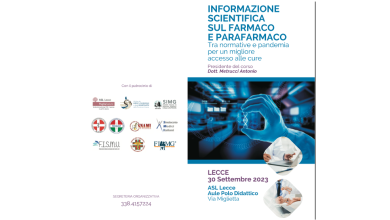
That doesn't stop Big Pharma from marketing a large number of ailments. It's the commodification of disease, honey!
“What is the best-selling drug in the United States”, asks the Daily beast. “Prozac? Viagra? Maybe something for heart disease?” The answer is Abilify (aripiprazole), a potent antipsychotic used in the treatment of schizophrenia and bipolar disorder, among other major psychiatric conditions.
Well yes, Americans spend more than 7.5 billion dollars per year for this powerful drug, but nobody knows how it works. However, that doesn't stop Big Pharma from marketing a large number of its ailments.
Between October 2013 and September 2014, the US spent more than $7.5 billion for this drug, or rather "drug", therefore drug.
There were nearly 8.8 million prescriptions a month in the same time period, Medscape Medical News reported. Sales of aripiprazole were the highest of all other major antidepressants combined.
The Bristol-Meyers Squibb (BMS) originally developed Abilify to treat schizophrenia – a disease that affects only one percent of Americans. A few years later, it was approved for bipolar disorder, an illness that an additional 1.5 percent of Americans battle. But then the Food and Drug Administration (FDA), which approves and regulates all drugs in the United States, allowed the drug to be used in combination with other drugs to treat other major depressive disorders, said Suzanne B. Robotti of the MedShadow foundation.

According to Dr. Candida Fink, an expert on bipolar disorder, depression, a significant and life-threatening illness, affects 16 million people in the United States.
BMS spends $121 million promoting Abilify each year, reports the MedShadow. Its ads explain that the drug works “like a thermostat to restore balance” and that “[when] the activity of key brain chemicals is too high, Abilify lowers them…. When the activity of substances is too low, Abilify raises them”.
The Daily Beast likened the drug to "a bazooka compared to more conventional anti-depressant revolvers."
“Our promotional activities focus on describing aripiprazole's mechanism of action as written” in the United States Product Insert (USPI), a spokesperson for Otsuka, which makes Abilify with Bristol-Meyers Squibb, told the Daily Beast.
But the insert sheds no light on how the drug works. In fact, it is said that the “mechanism of action of aripiprazole … is unknown”. It suggests a "proposal" that works, but does not list any evidence to support the theory. The FDA also says how Abilify works is "unknown."
In short, the exact way in which Abilify works has not been fully determined, not even in the web page that is supposed to explain how it works.
An article in PLoS Medicine calls drug ads “questionable” especially when one considers the “complexity of treating bipolar disorder (with its unknown etiology and well-known heterogeneity in response to treatment)”.
“However,” the authors noted, consumers are susceptible to these compelling adverts.
The lack of regulation by the governoo outcry from professional associations over Otsuka's claims, they speculated, "significantly contributes to the process of commodifying the disease."
“Advertising is everywhere”, said Fink Robotti. “The effects of advertising are very vivid. I talk to my patients about making the best decision for them and not relying on advertising. But that's definitely a big part of why Abilify is selling so well. Because of the publicity”
And patients who rely on TV commercials are the targets of drug companies looking to boost sales.
Abilify is also used to treat symptoms of irritability and aggression, mood swings, tantrums and self-injury related to autistic disorders in children 6 years and older, noted Drugs.com.
It's the commodification of disease, honey!
Ed.: CEO of Bristol-Myers Squibb is Lambert Andreotti (son of Julius). During the 2013 fiscal year, he received a total compensation of $ 20.847.746





